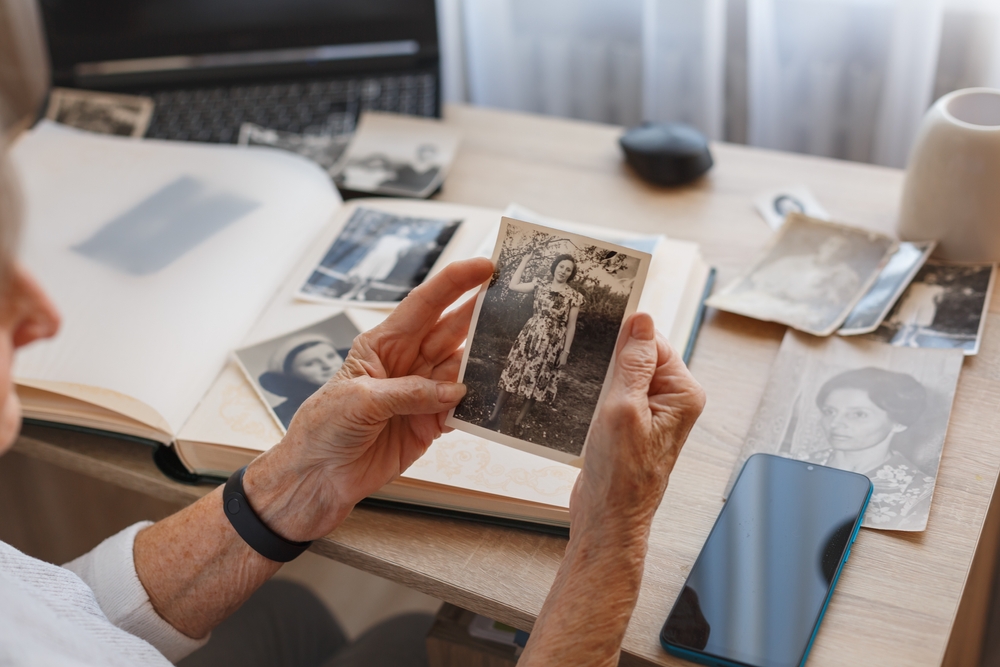How Memory Care Helps Seniors Lead High-Quality Lives in Mid- to Late-Stage Dementia

Each person’s journey with dementia is unique, and there will be moments of joy and heartbreak along the way. Although it may seem like your loved one’s personality is fading away, they still have a unique story and variety of interests, no matter how far the symptoms of dementia have progressed. Many people living with mid- to late-stage dementia still have the drive and desire to pursue the activities and hobbies they once loved.
You can help your loved one live a high-quality, self-directed life by keeping them engaged with you and their environment. A memory care program can help you find the right support and make the most of the time you spend together. Here’s a list of activities for people living with dementia, put together by our experts at Walnut Place.
Activities for Seniors with Mid-Stage Dementia
Activities that promote mental, social, and physical activity can be especially useful for someone in the middle stages of dementia. Most seniors can continue to participate in their favorite activities by simply changing the activity to match their abilities.
People with mid-stage dementia can still enjoy a variety of activities, such as:
Cook a meal together. You can create something fresh to eat by giving your loved one tasks like washing produce, mixing ingredients, or helping you clean up.
Grow a garden. Whether you have access to a community garden plot or a small planter, gardening provides a wonderful opportunity to enjoy the benefits of growing something together.
Read a book. Although reading can become more difficult as dementia progresses, there are ways to continue to nurture a love for reading. Check your local library or bookstore to find a growing selection of books written for people living with dementia.
Make a splash. Spending time in a pool as part of a supervised aqua therapy or water exercise class can help your loved one stay physically active and socially engaged.
Go for a walk. Walking is the perfect form of exercise for people with mid-stage dementia, because it’s generally safe and suitable for all abilities.
The best support you can offer is to encourage your loved one to keep trying and help them navigate their changing abilities with dementia. A self-directed lifestyle stems from a sense of self-worth, so make sure you’re always there to give them the confidence they need, and help only when they need it, so they can remain as independent as possible.
Activities for Seniors Living with Late-Stage Dementia
Although your loved one’s cognitive abilities may be significantly more limited in late-stage dementia, it’s important to focus on the abilities they do have. The most important aspect of engaging with your loved one is simply spending time to sit with them.
Here are some ways you can spend quality time together:
Get in the rhythm. Tapping and patting to a rhythm together using a stick or spoon is a great way to make your own music together — and make your loved one smile.
Have fun with stamps. Pressing stamps or stickers onto paper or cardboard is a great tactile activity for seniors in late-stage dementia.
Fold towels. While they may not make perfect squares, your loved one will still feel a sense of comfort and confidence when they perform a daily task like folding towels, blankets or clothing.
Work with yarn. If your loved one enjoys working with yarn but can no longer manage knitting or crocheting, you can make a yarn card for them to pull colorful yarn through.
Wrap a gift. Who doesn’t like to receive presents? Find something like a hatbox or decorative bottle and wrap it. Not only will your loved one like picking at the paper; they’ll also delight at the small prize inside.
It takes a lot of patience to do these types of activities with someone living in late-stage dementia, but as long as you stay patient and keep trying, you’ll both benefit from spending special time together.
Discover the Benefits of a Personalized Memory Care Program
At Walnut Place, we offer a nationally recognized approach to dementia care called Heartfelt CONNECTIONS — A Memory Care Program®. Heartfelt CONNECTIONS is a highly individualized plan tailored to your loved one’s personality and interests. It stimulates all five senses and activates their minds with person-centered care, instead of focusing on the limitations of their condition.
The principal focus of the Heartfelt CONNECTIONS program at Walnut Place is preserving a person’s individuality, which can be a source of comfort for people with dementia and caregivers alike. The program is designed with the following goals in mind:
- Helping those with dementia discover what brings them joy
- Promoting a sense of independence
- Changing the environment to suit the individual
- Respecting and highlighting a person’s history and personality
- Offering personalized care through tailored activities
Our Memory Care neighborhood encourages making heartfelt connections with your loved one, where every interaction is positive and uplifting, and they feel the most sense of self-worth, accomplishment, and satisfaction with life. Read another of our blog posts to learn more about communicating with your loved one as dementia progresses.
See How Your Loved One with Dementia Can Thrive at Walnut Place
Heartfelt CONNECTIONS, the personalized Memory Care program offered at Walnut Place, consists of unique activities and amenities to enrich the life of your loved one. With special options ranging from music and art therapy to a warm and secure environment, our community is a place where your loved one’s life will be enriched. We invite you to learn more about our Memory Care program and contact us to schedule a tour today!
You Are Invited to Experience Our Community!





